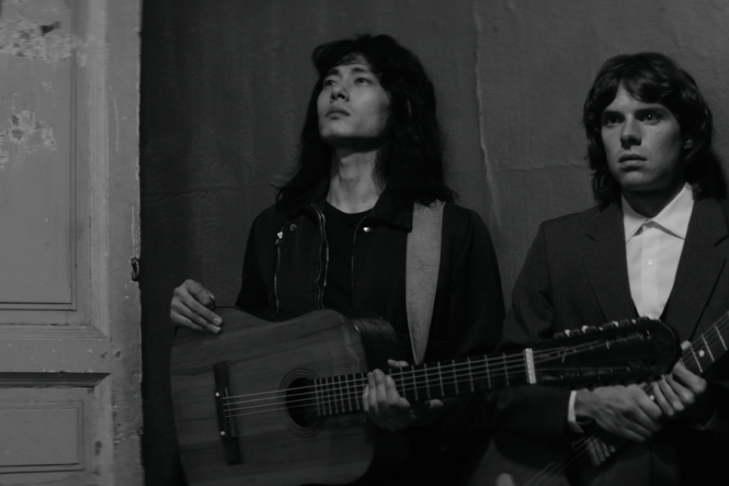The People’s Republic of Cambridge was rocked by a recent screening of a new movie about one of Russia’s greatest music stars from the punk era: Viktor Tsoi.
The story of Tsoi’s initial breakthrough is depicted in “Leto,” a new historical dramatic film by Russian Jewish director Kirill Serebrennikov. Released nationwide in June, “Leto” had multiple screenings at Harvard Square’s Brattle Theatre in August. The film has previously screened at venues including the Miami Jewish Film Festival this January and the Jerusalem Film Festival last year. It made its debut at the Cannes Film Festival in 2018.
Before Tsoi’s untimely death in a car accident in 1990, he had achieved meteoric success. Influenced by punk and New Wave bands, from David Bowie to the Sex Pistols, Tsoi and his band, Kino, inspired a fandom across the Soviet Union with pulsating hits that continue to be played today.
“I had read a great deal of buzz about ‘Leto’ coming from the Cannes Film Festival, but it wasn’t until I stumbled on it later that summer at the Jerusalem Film Festival that I was able to experience firsthand what a wild, whirling and exhilarating film experience it truly was,” wrote Igor Shteyrenberg, director of the Miami Jewish Film Festival, in an email. “It goes without saying how thrilled we were to share this tremendous film with our community of film lovers, who had an overwhelmingly positive response to it.”
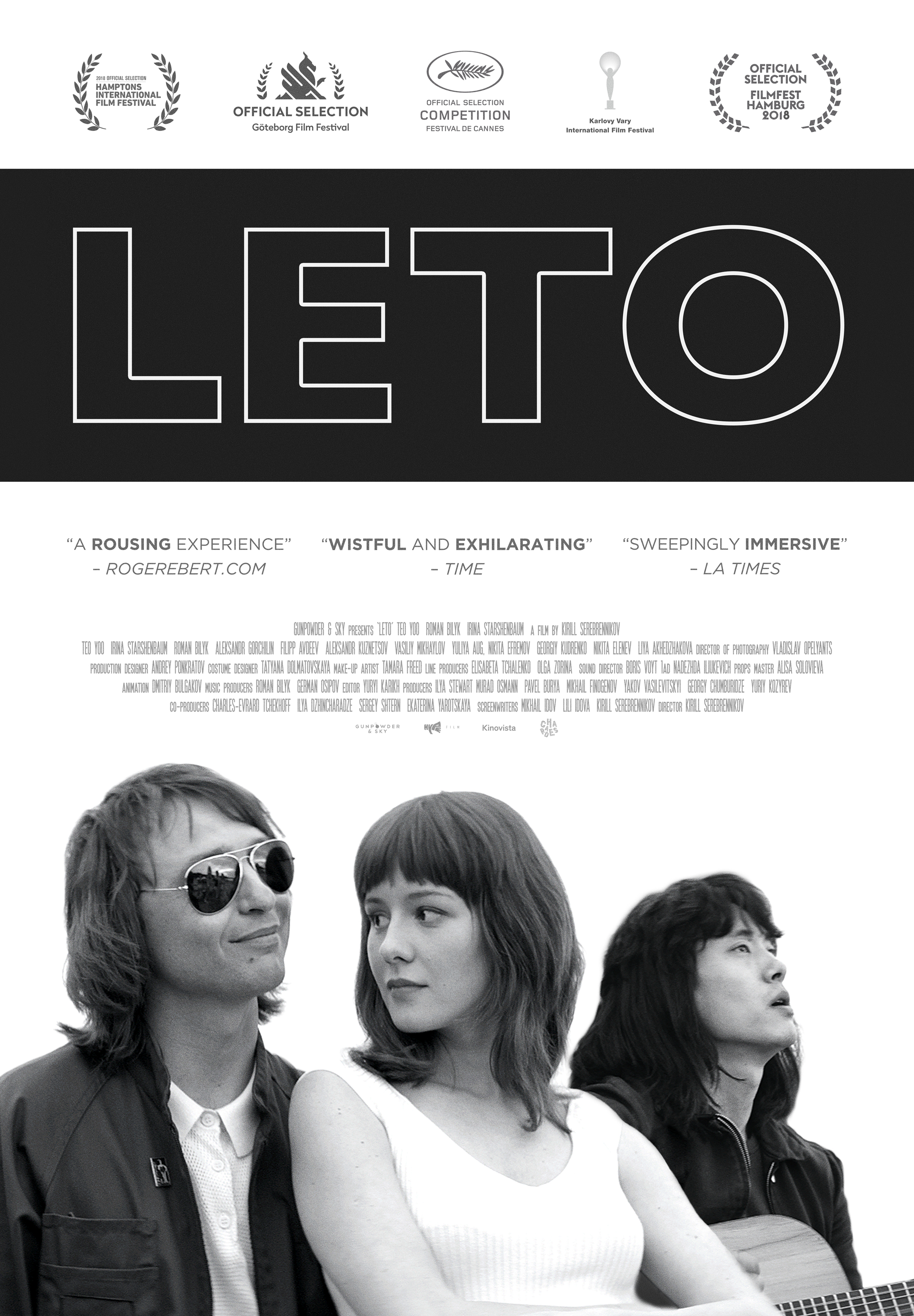
This is an opportune time for cinematic retrospectives on music, from “Bohemian Rhapsody” to “Blinded by the Light.” Yet while Western audiences are familiar with Freddie Mercury and Bruce Springsteen, “Leto” tells a story that is lesser known but just as compelling.
The film depicts Tsoi, who was born in 1962 of Korean and Russian descent, making his way to success in Leningrad in 1981. According to the film, Tsoi benefited from his friendship with, and guidance from, fellow Russian musician Mike Naumenko in an era of big hair and big dreams—and big challenges. The Soviet regime of Leonid Brezhnev made it difficult to be a nonconformist star, with rock clubs censoring lyrics and determining which musicians could—and could not—perform. The film, shot in sweeping black-and-white cinematography evocative of Alfonso Cuarón’s “Roma,” is influenced by the real-life remembrances of Naumenko’s wife, Natalia Naumenko, and by the book “Viktor Tsoy: The Last Hero of Modern Myth” by V. N. Kalgin.
“Leto” received a positive review from Arlington resident Sergey Kuzmenko, who was born in Kiev into a family of both Jewish and Ukrainian Orthodox Christian background and grew up watching Tsoi on TV. Kuzmenko’s resemblance to Tsoi in both looks and music earned him gigs at clubs and a role in a 2011 Russian film, “Tent-show” by Sergey Loban.
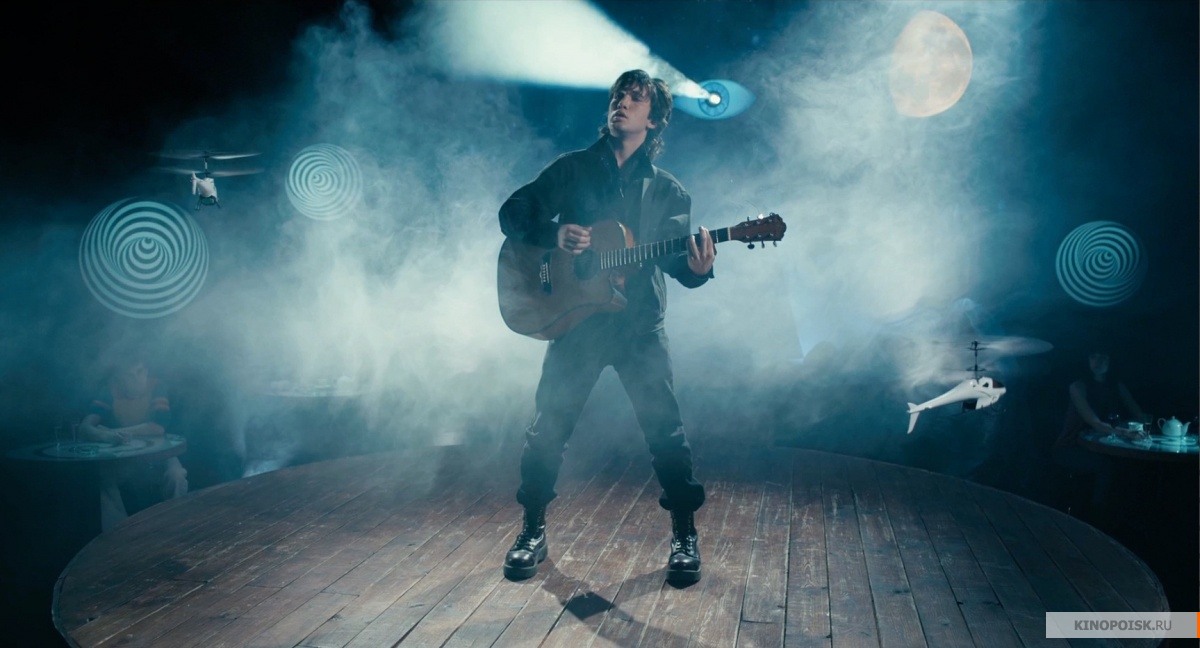
His character in “Tent-show” was “a lookalike trying to become like Viktor Tsoi,” Kuzmenko said. “The production was very philosophical,” with a message that even though Kuzmenko’s character might sing and look like Tsoi, the musician was unique, as was the case with other stars of his era. Although “there will always be lookalikes,” Kuzmenko said, “no one can replace Michael Jackson, Freddie Mercury [or] Viktor Tsoi.”
Kuzmenko tried out for the role of Tsoi in “Leto” but lost out to Korean actor Teo Yoo.
“Of course, he does not look like [Tsoi] exactly, but the way he behaved [in the film] is, I think, pretty close to the way [Tsoi] would have actually behaved,” Kuzmenko said, calling the movie “a good film” and describing Serebrennikov as “a talented director.”
Fans of punk and New Wave will see images of their idols on LPs smuggled into the Soviet Union: Bowie and Blondie, Lou Reed and T. Rex. The music of the era is also reflected in phantasmagorical song sequences involving hits such as “Psycho Killer” by the Talking Heads and Bowie’s “All the Young Dudes.” Illustrations by Naumenko—from astronauts to angels—accompany the cast as they dance through trains, into trolley cars and up staircases.
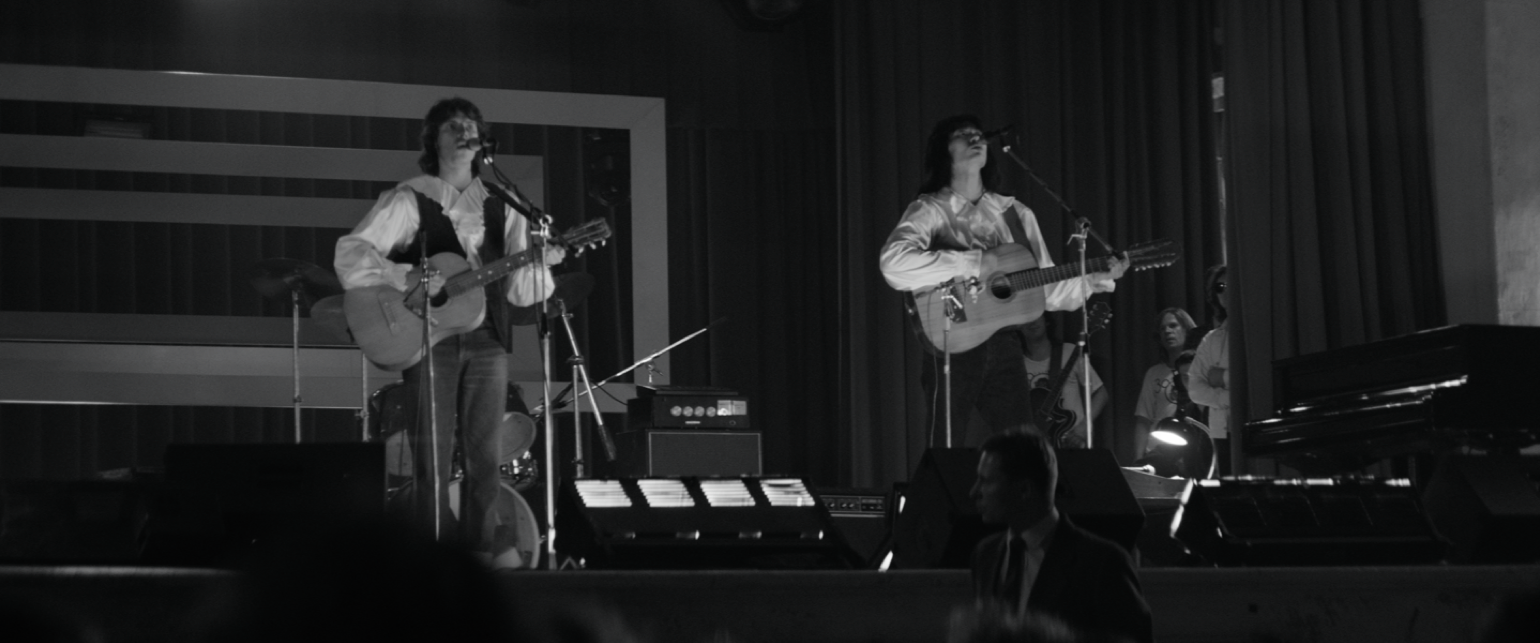
While the film does not play the music of Bob Dylan, he is mentioned multiple times, including in one scene when he is discussed admiringly for his social messages, from protesting the Vietnam War to calling for racial equality.
The film also features diverse selections from Tsoi’s career to show what made him such a star, from the bouncy “Aluminium Cucumbers” to the somber “A Tree.” Naumenko’s work is represented as well, including the spirited title song, which means “Summer” and gets an acoustic outdoor performance. Naumenko has a band of his own, Zoopark, but he’s not too busy to give guidance to the younger Tsoi, helping his protege with lyrics and providing backup on electric guitar for Tsoi’s debut at a Leningrad rock club.
The music is so good that it threatens to upstage the drama between Tsoi, Naumenko and Natalia. Naumenko tries to balance his music career with being a husband and father to baby Genia, but Natalia becomes intrigued by the more charismatic Tsoi and a love triangle develops.
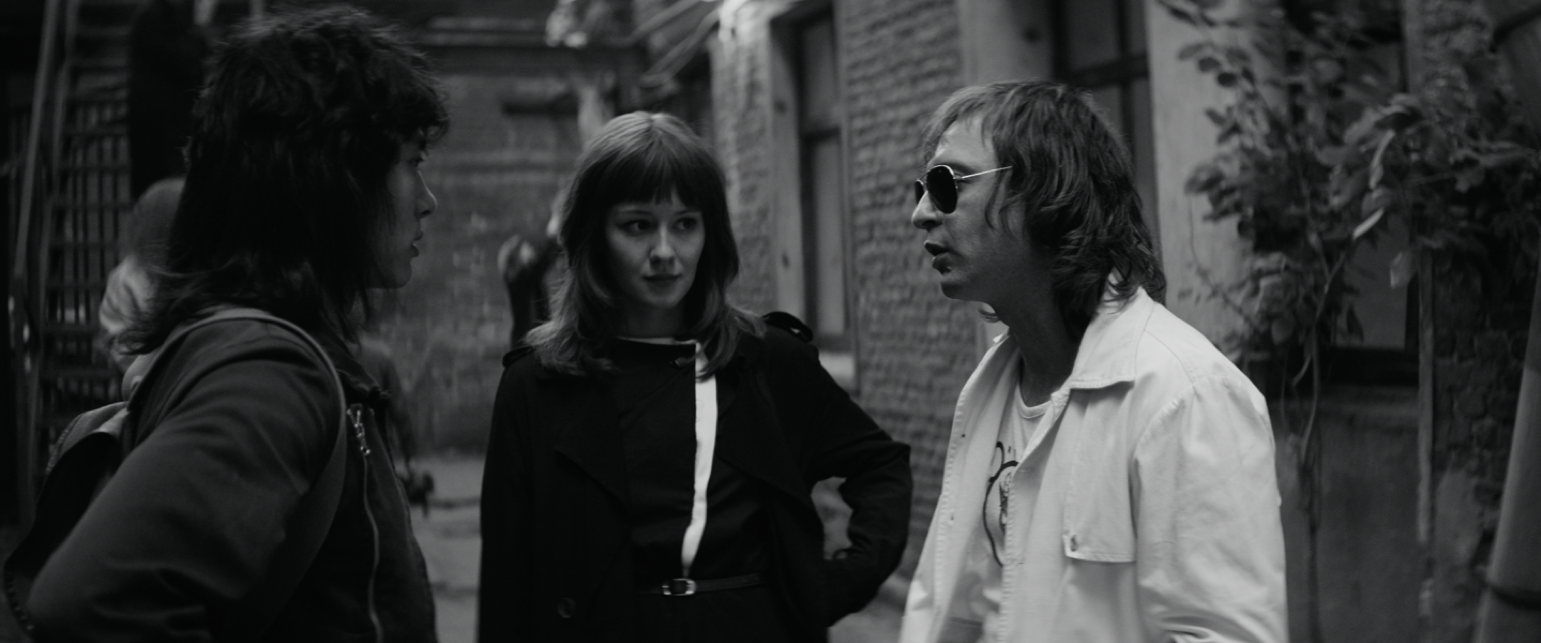
The backdrop to the personal drama is the tension of the Soviet state, which could erupt into violence at any moment, including an official beating a band member for promoting music that is allegedly anti-Soviet and pro-American. Following the bloody assault, the band member sings “Psycho Killer,” a scene that re-envisions the song as a statement against totalitarianism.
Director Serebrennikov has tangled with the present-day Russian government of Vladimir Putin. In 2017, Serebrennikov, a critic of Putin, was charged with embezzling government funds from his Gogol Theater in Moscow and placed under house arrest, which was where he finished making “Leto.” He was released from house arrest earlier this year.
Serebrennikov’s film brings light to music once held behind the opacity of the Iron Curtain. It illuminates an era of creativity and defiance, despite restrictions of the state, through the power of rock.


